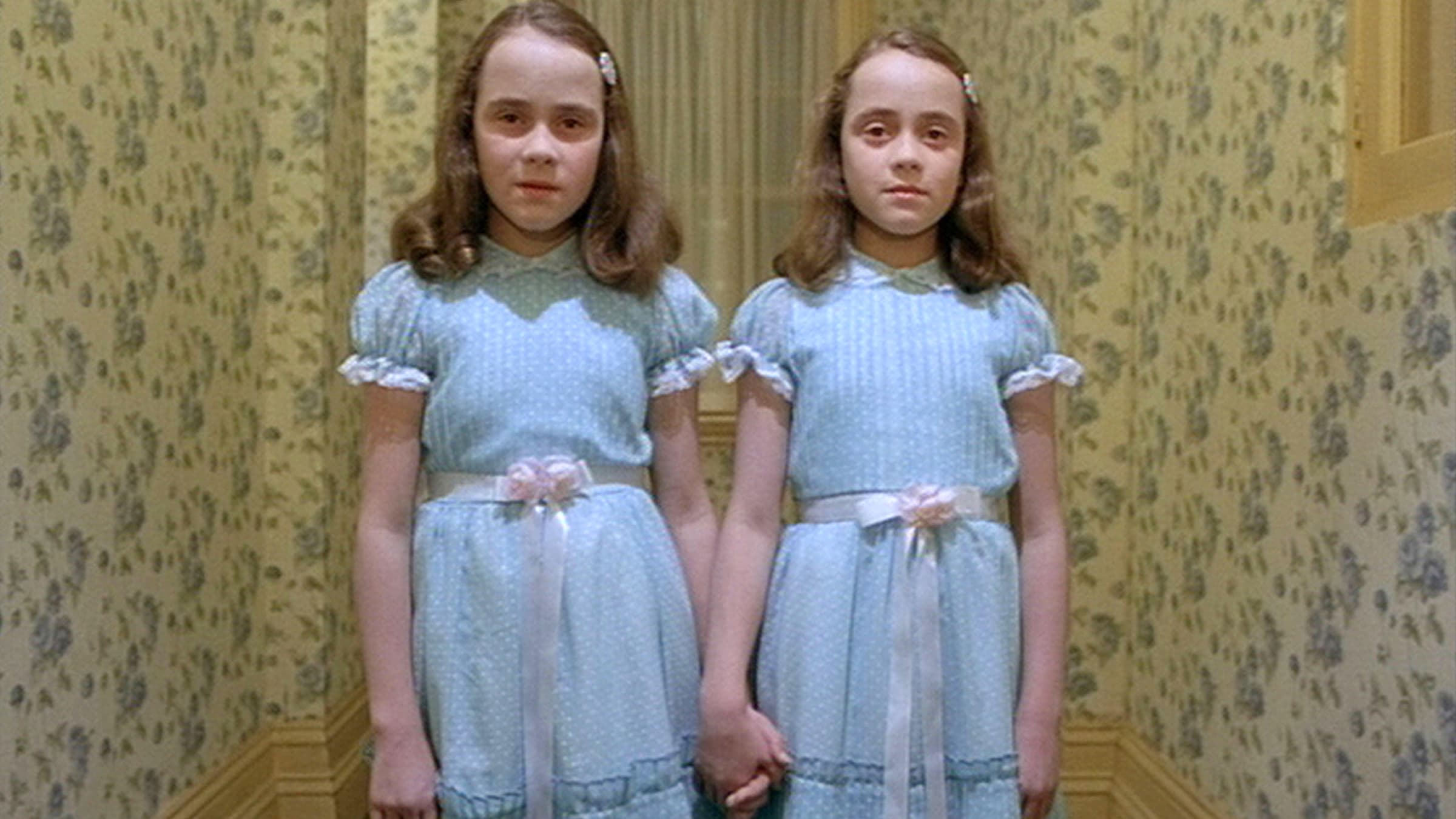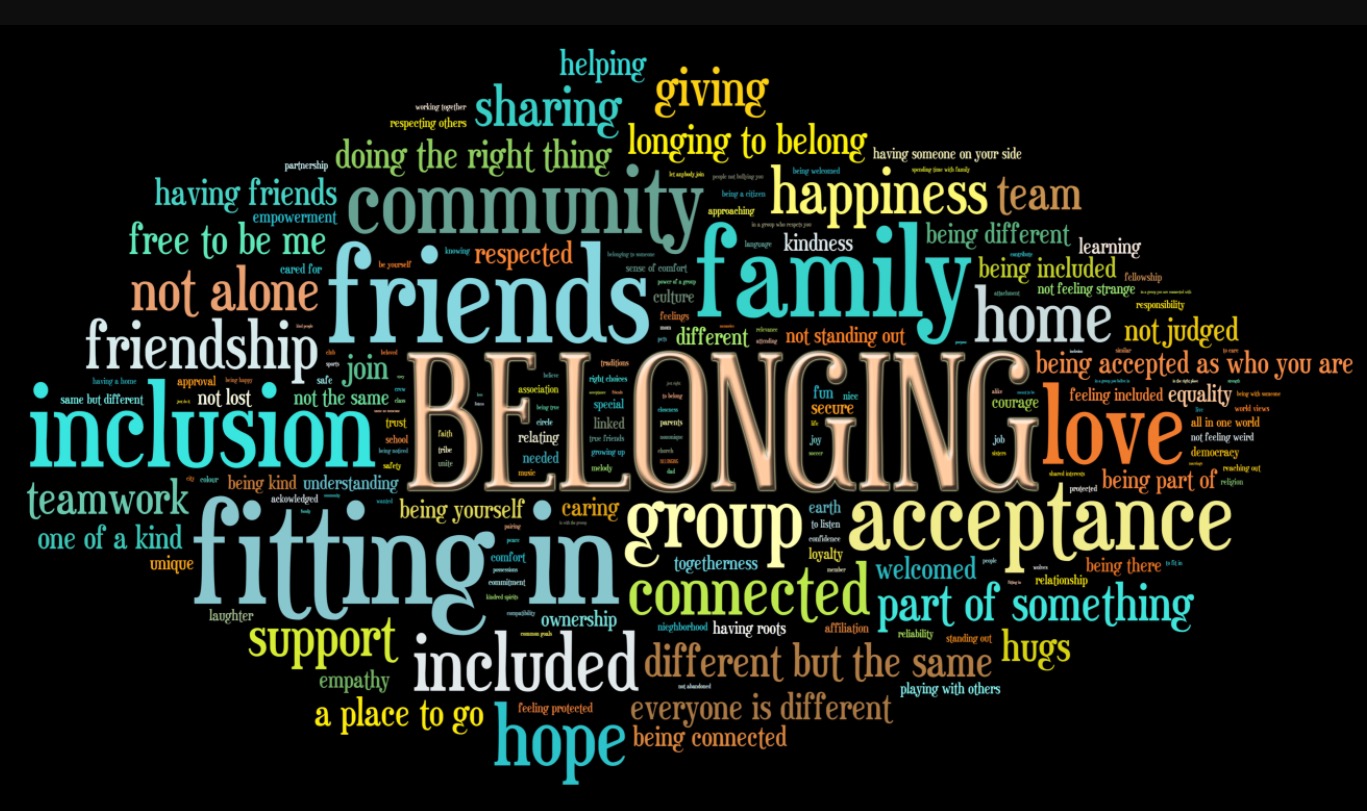Never Let Me Go: Are replacements human?
Traditionally when we think of clones we envision an eerie or creepy copy of something or someone. A popular example would be the two girls in The Shining or the clone figures in Star Wars. These shuddering thoughts we have are because clones demonstrate the feeling of uncertainty. How can you trust or respect something that is not like you? Kazuo Ishiguro's Never Let Me Go explores the idea of clones or replacements as inferior to humans. Although it is not one of my favorite books, the humans in the book challenge the reader's perspective by suggesting that clones/replacements are not as valuable as their human counterparts. However, what they overlook are the obvious essential qualities of being human that students at Hailsham demonstrate. Because of these human-like qualities, the clones deserve to be treated equally to their human counterparts.
Replacements or clones is Never Let Me Go's central theme and the main topic of discussion. The main characters Kathy, Tommy, and Ruth are students at a boarding school called Hailsham. Despite being a prestigious school, the creepy underlying aspect is that the school prepares the students to be organ donors in the future. In other words, the students are clones that are doomed to "complete" or die by giving up their organs to their human counterparts. While the kids grow up they slowly learn that being organ donors is their main purpose in life and Hailsham is preparing them for this fate. Kathy recognizes that Hailsham is the only place she knows about and remarks that "any place beyond Hailsham was like a fantasy land" (66). Kathy's limited understanding of what's beyond Hailsham gives the school a creepy, chilling nature and makes it clear that Hailsham is not the place you want to be. Hailsham is where kids go to prepare to die, therefore why would they need to know anything else beyond it.
Since the students have a sole purpose of serving as organ donors, the guardians or teachers at Hailsham treat the kids as if they are not human. In one instance the kids try to scare Madam and Kathy acknowledges that "she was afraid of us in the same way someone might be afraid of spiders" (Ishiguro 35). Madam's reaction to the kids shows the dynamic between the kids and the guardians. The kids represent a non-human and alien figure and the guardians are normal humans. In the same way we would be surprised and scared if an alien appeared right in front of us, the guardians are scared to get close to the students without warning.
Another example is when the head guardian, Miss Emily, tells Kathy and Tommy "We're all afraid of you. I myself had to fight back my dread of you all almost every day at Hailsham" (269). The same dread one would have if they had to interact with an alien every day. The feeling of uncertainty and uneasiness when interacting with something that is not like you.
Miss Emily also confesses that "people did their best not to think about you...and tried to convince themselves you weren't really like us. That you were less human, so it didn't matter" (263). Humans in the book want to establish their superiority in order to feel dominant and make it easier to ignore the students without feeling guilty.
As the head guardian, Miss Emily's input is influential on all the other guardians. When she says "all" she speaks for the other guardians and makes it clear that they all had the same understanding and opinion of the kids. She further reinstates the sole purpose the students have as organ donors and not humans.
But even though the guardians believe that the students are inferior to them, I believe that the students/clones deserve to be treated equally and fairly as humans.
Human qualities are greatly portrayed in the students at Hailsham. In various examples, their actions and words display their human likeness.
Kathy and Ruth fit into very different personality types. Ruth's egotistical attitude is a natural foil to Kathy's more reserved and caring personality type. Their differences show that they have the human characteristic of having your own personality.
Kathy is a sweet and caring woman. On the first page of the book, we learn that she has been a carer for 12 years. She establishes a strong caring relationship with her and the donors. Kathy notes "I know when to hang around and comfort them and when to leave them to themselves" (1). Her innate sense of knowing how to make people feel comfortable makes her good at her job.
Ruth, on the other hand, is portrayed as very arrogant and pretentious. She constantly tries to be better than Kathy in everything and throughout her entire toxic relationship with Tommy, she makes herself the priority.
One other human characteristic about Ruth is her desire to feel belonging. At the Cottages, Ruth alters her behavior with Tommy to try to fit in with the veteran couples. Kathy explains "there was this one gesture Ruth picked up from the veterans... Ruth was soon doing it to Tommy" (121). Ruth prioritizes her relationship with the veterans more than her relationship with Tommy. Even though she has been with Tommy for a while, she is willing to jeopardize their relationship to feel accepted by others.
Her desire to feel a part of something bigger such as the veterans is a human characteristic that we all share. Everyone wants to belong and feel accepted but is it worth turning your back on your loved ones?
As humans, we think often about the future, present, and past. Before the students at Hailsham had a concrete idea of their future they pondered about it. On one account two boys, Peter and Gordon were discussing "what it would be like if [they] became actors. What sort of life would it be" (80). Miss Lucy quickly stops them explaining to them "Your lives are set out for you..."You'll donate your vital organs. That's what each of you was created to do...you're not even like me (81). As mentioned, the guardians view the students as inferior to them. Miss Lucy's comments show the contrast of her perception of the students to herself as a human.
The two boys wondered about their future because wondering is a normal human thing to do. We want to know what is to come and we want to predict our fate, but at the end of the day, it is not up to us. After this moment the boys and the kids at Hailsham begin to understand the reality of not being able to become whatever they want to be.
The simplest argument for the clones being human is that all the students are Hailsham eat, breath, sleep and have human emotions just as we all do. It is simply the fact that their life is given up for someone else's in the end that makes them viewed as non-worthy. But I think that they deserve respect because they are still the reason that someone else gets to live. So isn't that enough to treat them fairly?
Never Let Me Go, poses to show an outlook on the idea of clones and replacements and how they compare to humans. the humans in the book see the clones as non-human while as a reader I think they have main key human qualities that classify them as human.
 |
| Twins in "The Shining" Photo Credit: People.com |
Replacements or clones is Never Let Me Go's central theme and the main topic of discussion. The main characters Kathy, Tommy, and Ruth are students at a boarding school called Hailsham. Despite being a prestigious school, the creepy underlying aspect is that the school prepares the students to be organ donors in the future. In other words, the students are clones that are doomed to "complete" or die by giving up their organs to their human counterparts. While the kids grow up they slowly learn that being organ donors is their main purpose in life and Hailsham is preparing them for this fate. Kathy recognizes that Hailsham is the only place she knows about and remarks that "any place beyond Hailsham was like a fantasy land" (66). Kathy's limited understanding of what's beyond Hailsham gives the school a creepy, chilling nature and makes it clear that Hailsham is not the place you want to be. Hailsham is where kids go to prepare to die, therefore why would they need to know anything else beyond it.
 |
Photo Credit: CNN.com |
Another example is when the head guardian, Miss Emily, tells Kathy and Tommy "We're all afraid of you. I myself had to fight back my dread of you all almost every day at Hailsham" (269). The same dread one would have if they had to interact with an alien every day. The feeling of uncertainty and uneasiness when interacting with something that is not like you.
 |
| Hailsham boarding school Photo credit:WordPress.com |
Miss Emily also confesses that "people did their best not to think about you...and tried to convince themselves you weren't really like us. That you were less human, so it didn't matter" (263). Humans in the book want to establish their superiority in order to feel dominant and make it easier to ignore the students without feeling guilty.
As the head guardian, Miss Emily's input is influential on all the other guardians. When she says "all" she speaks for the other guardians and makes it clear that they all had the same understanding and opinion of the kids. She further reinstates the sole purpose the students have as organ donors and not humans.
But even though the guardians believe that the students are inferior to them, I believe that the students/clones deserve to be treated equally and fairly as humans.
 |
| Photo Credit: New York Post |
Human qualities are greatly portrayed in the students at Hailsham. In various examples, their actions and words display their human likeness.
Kathy and Ruth fit into very different personality types. Ruth's egotistical attitude is a natural foil to Kathy's more reserved and caring personality type. Their differences show that they have the human characteristic of having your own personality.
Kathy is a sweet and caring woman. On the first page of the book, we learn that she has been a carer for 12 years. She establishes a strong caring relationship with her and the donors. Kathy notes "I know when to hang around and comfort them and when to leave them to themselves" (1). Her innate sense of knowing how to make people feel comfortable makes her good at her job.
 |
| Photo Credit: BBG.com |
One other human characteristic about Ruth is her desire to feel belonging. At the Cottages, Ruth alters her behavior with Tommy to try to fit in with the veteran couples. Kathy explains "there was this one gesture Ruth picked up from the veterans... Ruth was soon doing it to Tommy" (121). Ruth prioritizes her relationship with the veterans more than her relationship with Tommy. Even though she has been with Tommy for a while, she is willing to jeopardize their relationship to feel accepted by others.
Her desire to feel a part of something bigger such as the veterans is a human characteristic that we all share. Everyone wants to belong and feel accepted but is it worth turning your back on your loved ones?
 |
| Photo credit: Telhai.com |
As humans, we think often about the future, present, and past. Before the students at Hailsham had a concrete idea of their future they pondered about it. On one account two boys, Peter and Gordon were discussing "what it would be like if [they] became actors. What sort of life would it be" (80). Miss Lucy quickly stops them explaining to them "Your lives are set out for you..."You'll donate your vital organs. That's what each of you was created to do...you're not even like me (81). As mentioned, the guardians view the students as inferior to them. Miss Lucy's comments show the contrast of her perception of the students to herself as a human.
The two boys wondered about their future because wondering is a normal human thing to do. We want to know what is to come and we want to predict our fate, but at the end of the day, it is not up to us. After this moment the boys and the kids at Hailsham begin to understand the reality of not being able to become whatever they want to be.
 |
| Photo credit: orderofthewhitelion.com |
The simplest argument for the clones being human is that all the students are Hailsham eat, breath, sleep and have human emotions just as we all do. It is simply the fact that their life is given up for someone else's in the end that makes them viewed as non-worthy. But I think that they deserve respect because they are still the reason that someone else gets to live. So isn't that enough to treat them fairly?
Never Let Me Go, poses to show an outlook on the idea of clones and replacements and how they compare to humans. the humans in the book see the clones as non-human while as a reader I think they have main key human qualities that classify them as human.
I agree. I wonder if we were in the same situation if we would have accepted clones. While they obviously have human characteristics and emotions, I don't think most humans would understand. Our society also tells us that humans are superior to other species, so I do not think most people would be okay with having clones being treated equally, but let's hope so!
ReplyDeleteYes that's a good point. I would also like to think that as as humans would be okay with treating clones equally since they serve an important role to their human counterparts. But I understand what you mean. It would interesting to see how the dynamic would work in real life.
DeleteI definitely agree with your point. It was somewhat disturbing to read how passive the clones were with their situation especially once I was invested in the characters, knowing they had human traits and were just normal people. I also agree with the above comment, the human-first ideas are so prevalent in society, even today, I do not think that there would ever be a time where humans would accept any sort of non-human as an equal.
ReplyDeleteI understand fully what you mean and I also find the above comment. I think it is interesting to think how I would act in that situation. I think that humans are becoming more aware of certain nonhuman rights such as animal rights with organizations such as PETA. But surely they are still not treated as equal.
DeleteI agree with your point. Before the book revealed they were clones, they seemed like humans. This inferiority complex is so prevalent in our society, in fact we see it amongst humans as well, in the form of racism. Do you think Ishiguro may have been trying to bring awareness to this issue through his book?
ReplyDeleteYes, I do think Ishiguro was trying to bring awareness to this. I think he made it so obvious that although they are treated as inferior they act the same as the "humans" in the book.
Delete